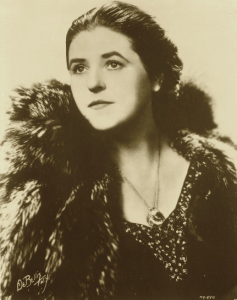Podcast: Play in new window | Download (Duration: 1:42:14 — 109.2MB) | Embed
Subscribe: Spotify | TuneIn | RSS | More
I sat in my apartment in Berlin on the Fourth of July wondering how, after the events of this past Monday, I can possibly pay tribute to our nation as it “celebrated” its birthday. Then it hit me: since I would never in a million years produce an episode of patriotic musical material, why not pay tribute to a great American singer instead? I had already been planning an upcoming bonus episode on ELEANOR STEBER, the singer I consider to be one of the greatest (if not the greatest) soprano that our country has ever produced! Nearly two years ago, with the help of my dear friend Michelle Oesterle, who was Eleanor’s step-daughter, I produced an episode dedicated to her; today’s episode will not delve so much into the (still-controversial) person that Eleanor was, but rather offer a cross-section, over the course of more than 40 years, of the wide variety of styles and repertoire in which Steber excelled. Who else could traverse a range of repertoire from Rodgers and Hammerstein to Mozart, Rameau to Wagner, Berlioz to Romberg with such ease and joyful authority? Not only do I explore her longevity, I explore her unparalleled prowess as a vocal technician; as well as her well-documented bad treatment by the Metropolitan Opera and its then-general manager, Rudolf Bing. I also look at the recordings that Steber and her then-husband, Michelle’s father, produced on their own ST/AND label in the early sixties, and then hear Steber sing some quintessentially American music from classic musicals. Along the way, I consider some serious topics, including betrayal, alcoholism, and the power of embedded memory. Finally, I consider the possibility that Eleanor Steber’s celebrated portrayal of Minnie in La fanciulla del West might just offer a possible solution for the divisiveness and political turmoil in which our country currently finds itself. Featured guest singers on the episode include Nelson Eddy, Brian Sullivan, Rosalind Elias, and Jussi Björling; musical collaborators include Dimitri Mitropoulos, Igor Kipnis, Allen Rogers, Fritz Stiedry, and her frequent concert and radio collaborators Howard Barlow and Edwin Biltcliffe.
Countermelody is a podcast devoted to the glory and the power of the human voice raised in song. Singer and vocal aficionado Daniel Gundlach explores great singers of the past and present focusing in particular on those who are less well-remembered today than they should be. Daniel’s lifetime in music as a professional countertenor, pianist, vocal coach, voice teacher, and journalist yields an exciting array of anecdotes, impressions, and “inside stories.” At Countermelody’s core is the celebration of great singers of all stripes, their instruments, and the connection they make to the words they sing. By clicking on the following link (https://linktr.ee/CountermelodyPodcast) you can find the dedicated Countermelody website which contains additional content including artist photos and episode setlists. The link will also take you to Countermelody’s Patreon page, where you can pledge your monthly support at whatever level you can afford. Bonus episodes available exclusively to Patreon supporters are currently available and further bonus content including interviews and livestreams is planned for the upcoming season.



